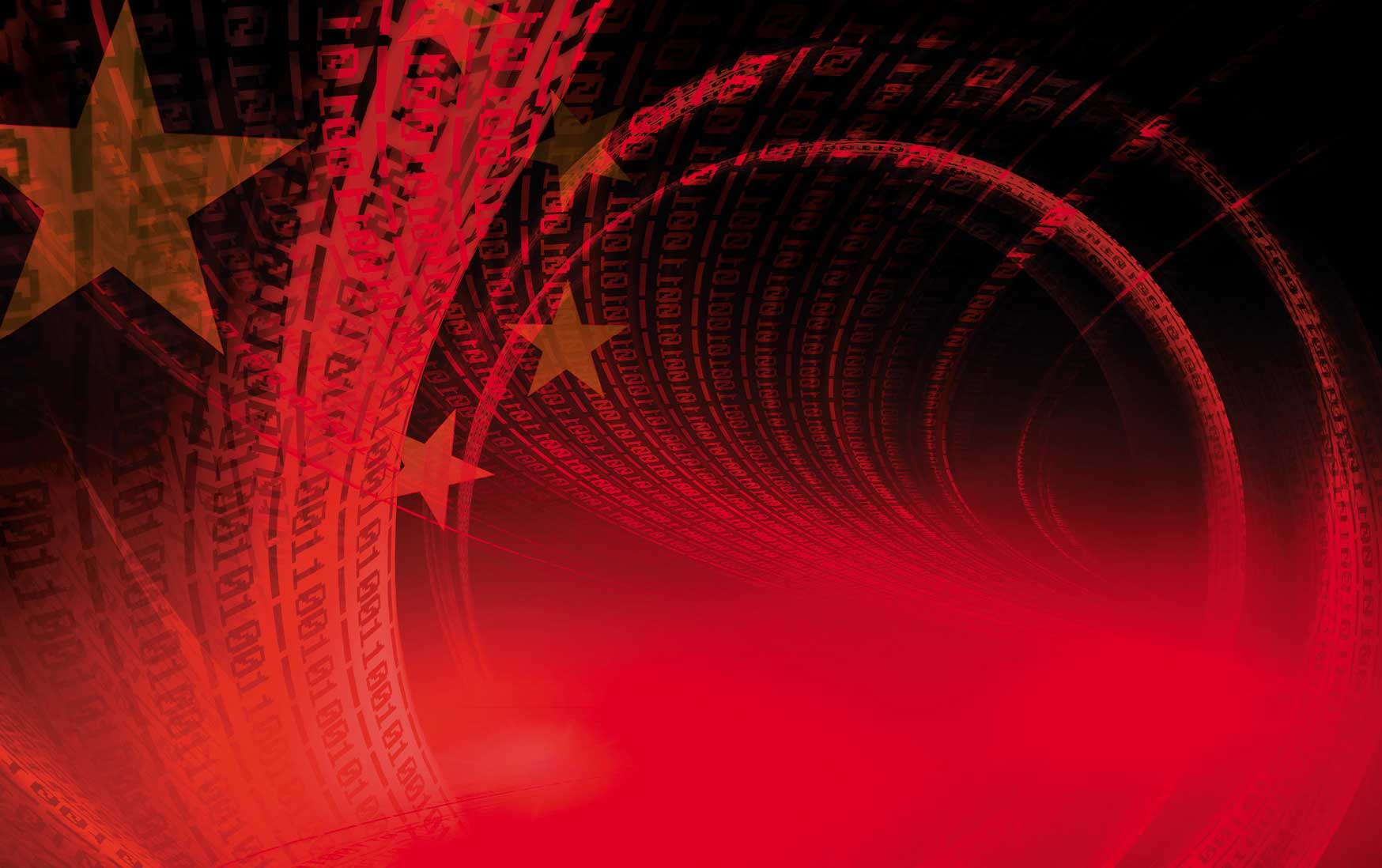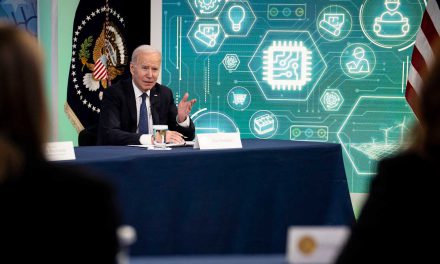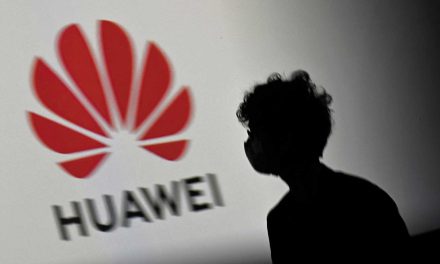The expression “tenacious contention” suggests that China and the United States are at an impasse after a dogged battle for the position of global hegemony. But what if hegemony is less about deliberate, tenacious actions and more like the gravitational pull that occurs when a larger, more powerful nation exerts its influence on smaller ones? In this case, China’s laudable economic and digital enhancing efforts in Africa may even herald the Middle Kingdom’s inevitable supremacy in global politics, economics, military affairs, and specifically, in the race for dominance in the digital space.
But what if the US is not an ardent contestant for digital hegemony? Why is the US Department of Defense not rushing back into the digital race with research and funding, following the recent launch of China’s Digital Silk Road Initiative? And why do media houses still refer to China’s efforts as “attempts to capture control” from the US? Could America’s uncoordinated efforts in the digital space counter China’s unified focus on digital supremacy?
I present these broad questions because the answers may not have the sort of rose-coloured scenarios some in Beijing and Shanghai hope for. In the same vein, any supposed contention for global hegemony may not present African capitals with the sort of bargaining chips some aspire to cash in on the sidelines of a Sino-American battle for spheres of influence.
Antonio Gramsci defined hegemony as cultural, moral, and ideological leadership over allied and subaltern groups. More recently, Robert Kagan referred to it as a “condition” and not a “purpose”. What these two authors have inherently understood is that the concept of political or digital hegemony prioritises the optimal balance of consent and coercion. For instance, by investing state resources to exert strategic, social, and military control of the global digital technology arena, China may have adopted Robert Cox’s hegemonic facets around “conditioning” and “socialisation”. In contrast, Chinese technology is readily available. African autocrats have also deployed it to tighten nooses around social and digital media freedoms. Juxtapose that with how many Africans warmly embrace unfettered market-driven internet access.

Granted, this introduction presumably glosses over the significant political, economic and military strides China has made since 1978. By impressively leveraging foreign direct investment (FDI) and total factor productivity, China has redefined what it means to be a developing country. By infusing significant resources into the global digital environment, China can conduct cyber warfare just as effectively as it can build more seaworthy military vessels. The world’s manufacturer is now a major player in designing next-generation digital products and services and is expected to surpass the US as the world’s largest economy in 2030.
But if we are discussing hegemony in its traditional sense, we must ask whether China dominates the Far East in the uncontested fashion a regional hegemon is ideally supposed to? Unfortunately for China, this is not the case. Whereas Southeast Asia’s developing nations are well served by China’s inexpensive, digital wireless and broadband internet solutions coverage, American behemoths like Amazon, Apple, Cisco, and Microsoft have more enormous footprints than China’s Tencent, Alibaba, and WeChat Pay. As Jake Sullivan – shortly before he was elevated to US President Joe Biden’s National Security Advisor – suggested, China is still surrounded by American military bases, allies, and security partners like Vietnam, Taiwan, and Japan. And these American allies are wont to resist rather than accommodate the Chinese ascendancy.
On the other hand, coupled with Chinese investments in Africa’s telecommunication infrastructure, Huawei and Zhongxing Telecom’s affordable products have taken significant market share from Ericsson, Alcatel, Nokia, and Siemens. From this perspective, China is seeing success on the hegemony front. Paul Nantulya of the US Defense Department’s Africa Center for Strategic Studies has intimated that successfully applying a Guānxì-based system of reciprocity, personal ties, and mutual obligations in Africa ensures and secures Chinese national interest and security in Africa for years to come. China also surpassed the US as Africa’s largest trading partner in 2009 and has relatively more diplomatic posts in the world’s 221 destinations for FDI.
Here, my well-connected and well-read friends in various African capitals may sit back, fold their arms, and point out that China has won the battle for both global and digital hegemony in Africa’s eyes. They will show you the number of Chinese infrastructure projects, and the number of countries signed on to take Huawei’s 5G services. Of course, I understand these sentiments. Besides, why would Africa not appreciate the Chinese when the latter’s consumer products are much cheaper than American ones? What about where Chinese bureaucrats typically sign off on projects and loans in much less time than most western-allied financial and concessionary lending bodies?
Fine, China deserves all the credit it can get. It matters less that the US is the most significant contributor to the US Agency for International Development’s (UNAID) budget and more that China lent $85 million to the Cameroonian government to build its South Atlantic Inter Link (SAIL) facility. On top of having the world’s most voluminous training programmes for African professionals, Chinese venture capitalists have become more synonymous with Nigeria’s technological boom than behemoths like Google and Microsoft. To this, Nantulya pointed out that there is Chinese virtuoso in providing soft and hard infrastructure to Africa in exchange for mega consortiums that should marshal strategic minerals like cobalt and copper for years to come.
Invariably, it is essential to note that unlike China, which seeks alliances with Africa for existential reasons, the relationship between Africa and the US is not driven by economic, security, or diplomatic reasons. Yes, the US will insert its marines in Mali or Niger. And here, I must qualify my statements. The American people care about what happens in Africa. They will send their “boys and girls” to conflict, hunger, drought, and democratic governance situations. But the truth is that Africa plays an infinitesimal role in America’s foreign policy or economic constellation. Where the total USAID budget for the continent of more than one billion Africans – many living below the poverty line – is less than $4 billion annually, compare Africa’s needs with the $40 billion apportioned to help Ukraine deal with its Russia problem.
Further, the US Commerce Department’s Bureau of Economic Analysis (BEA) will reveal that between 2000 and 2020, the cumulative amount of US direct investment abroad (USDIA) to all 55 member states of the African Union was less than 0.8% of the approximate aggregate $6 trillion invested around the world. American exports to Africa are below par, and the minuscule African exports under the African Growth and Opportunity Act (AGOA) favour crude oil, textiles, and apparel exporters.
Hence, even if the Biden administration does not talk of China as much as the Trump people did, China’s “enthusiasm” for Africa shall not prompt America to change how it deals with Africa. If this were the case, the US would have removed its punitive sanctions against Zimbabwe once China made a play for Zimbabwean copper, uranium, and diamonds. Unlike the government-led institutions permeating China’s foreign and economic policy, America’s public policy for Africa is designed by those private sector interests (both local and foreign) that seek to influence it. As the Africa Development Bank’s (AfDB) Akinwumi Adesina found, African entities must garner interest groups so that they can control the amounts inserted into the appropriations bills that are signed into American law.
At this juncture, you could ask: did the contention for hegemony between the US and the former USSR affect Africa’s socioeconomic fabric? The reality is that many more Africans share a language and cultural heritage with the Americans than they do with the Chinese (and Russians before them). While Africans bought Russian cars, they bought more American-allied goods such as Japanese Toyotas. Today, we know that Chinese influences are not as attractive as Netflix, Facebook, Twitter, and Instagram. Hence, as long as Chinese products – digital or otherwise – are driven more by strategic concerns than by consumer preferences, any Chinese gold medals in the contention for digital dominance shall be Pyrrhic victories in the war for digital hegemony.
[activecampaign form=1]
Dr Dennis Matandawas staff director of the Foreign Affairs sub-committee on Africa, Global Health, and Global Human Rights in the US House of Representatives. Between 2013 and 2018, he represented COMESA in Washington, DC, and testified to the US Congress and the US International Trade Commission (USITC). With extensive trade, investment, and strategic communication experience garnered from working in over 35 developing countries for the African Union, COMESA, ECOWAS, UN, and USAID, Dennis is a much sought-after expert on socio-economic relations between Africa and developed nations. He is also an adjunct professor of contemporary American politics.












